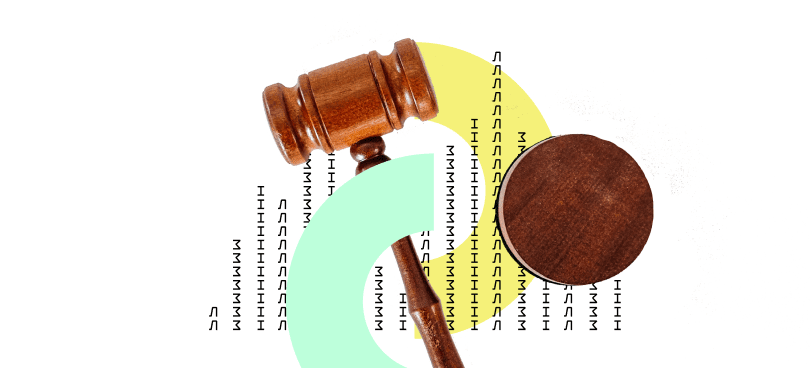Ukraine is currently at a crucial stage of its development when reforms are mandatory for improving the existing social and political order. These processes have acquired particular significance in the conditions of the Revolution of Dignity when Ukrainians opted for a pro-European vector of their state’s development. A new impetus to implement large-scale changes emerged after the russian federation’s invasion of Ukraine in 2022 when Ukraine received a real chance to bring its long-standing plans concerning European integration to life and become a member of the European Union.
After signing the Agreement on Association with the European Union, Ukraine committed to aligning its legislation and the functioning of state institutions with European standards. This, in turn, indicates the need to modernise a significant portion of public life domains significantly. In addition, the urgent need for reforms has emerged in the conditions of destruction brought about by the war in Ukraine. Therefore, the primary goal today is not just to preserve but also to rebuild the state, which is what Ukraine’s Recovery Plan is aimed at. Because of this, our country faces a vital objective – to think carefully about how these reforms will be developed and implemented. It takes a balanced approach to enable the possibility of speeding up Ukraine’s European future.
The previous experience of reforms, when the processes of upgrading and considerably improving governmental institutions were launched after a crisis, may become the benchmark for building a strategy for implementing changes. At the same time, this experience shows not just positive developments achieved but also highlights problems to avoid. Quite often, courts considering cases on reforms in appeal proceedings join the process of identifying deficiencies. In this regard, within the framework of the “Civil Society for Ukraine’s Post-Ware Reconstruction and EU-Readiness” Project, which is funded by the EU, the Agency for Legislative Initiatives conducts a study on judicial intervention in the course of reform implementation.
The practice of reforms in the Ukrainian context: what is wrong with it?
The experience of implementing reforms in the public law domain confirms that not all changes are successful. This is predominantly related to how responsibly and professionally representatives of the authorities approach the matter of their design and implementation. Consequently, we end up in a situation where the success of reforms depends on the quality of governmental institutions at two levels:
- legislative, which concerns designing the essence and goal of the reform, conducting preparatory works (including developing draft laws and regulatory acts) and adopting regulatory acts that govern the reform process;
- law enforcement, where reforms are implemented in practice through the activities of authorised government authorities (and sometimes public sector representatives).
The practice of holding a series of reforms and procedures for state power lustration that took place in 2014–2023 indicates that, unfortunately, quite often, each of these stages is accompanied by a considerable number of errors. Consequently, the results of some reforms and procedures were massively appealed in courts. The cases of lustration in 2014, re-attestation of the staff of the National Police of Ukraine in 2015–2016, the cleansing of courts from “Maidan judges,” and the attestation of prosecutors of the Prosecutor General’s Office in 2019 were all evidence of this.
The case law for these cases was initially heterogeneous, which was also reflected in court cases on recognizing lustration reforms or procedures as “legal” or, on the contrary, “illegal.” However, later, Ukrainian courts started following the single line in assessing the quality of these proceedings. In this case, the stance of international judicial institutions also had a significant influence. This is associated with the fact that, in some cases, disputes go beyond the national jurisdiction and become the subject of consideration for the European Court of Human Rights (for instance, this was the case in the situation with lustration). This fact indicates the scale of the problems accompanying the course of reforms in our state. This does not add a positive assessment in the eyes of international partners.
Overall, the case law analysis shows that many reforms are characterized by typical shortcomings, which traditionally go together with implementing social and political changes. Hence, the following are quite often valid reasons to appeal to introduced innovations:
- Low quality of preparation of regulatory acts accompanying the reform process in Ukraine.
- Disregard of international standards.
- Authorities involved in implementing reforms often act contrary to specific legislative requirements.
- Decisions made during reform implementation are not adequately substantiated.
The Constitutional Court of Ukraine often joins in the process of recognising reforms as not effective enough or elaborated incorrectly. The CCU that has the authority to determine whether a particular rule of law is unconstitutional and, consequently, to inquire about the legality of the reform. Such developments in reform implementation are the most telling since they directly indicate negative trends in the law-making process.
Furthermore, the cost of errors made during failed reform design and practical implementation is often relatively high. Courts award significant compensation amounts if the reform has been recognised as a failure and results in harm to the interests of other individuals. It is revealing that such consequences were observed in cases of lustration, attestation of the personnel of the National Police and prosecutors of the Prosecutor General’s Office. Undoubtedly, these compensations are a considerable blow to the state budget of Ukraine.
In conclusion, court judgements indicate that the current practice of reforms in Ukraine must be changed. One of the key moments on the way to achieving this is considering negative experiences to subsequently improve the strategy for reforming social relations.
Is everything that bad?
Noteworthy, the practice of implementing changes in the public-law domain in Ukraine is not always so sad. Judicial interventions do not necessarily presuppose unanimous revocation of the results of innovations. The procedure for banning pro-Russian parties in 2022–2023 is a tangible manifestation of this. This case demonstrated that when the enacted changes are free of legislative flaws and fully satisfy the needs of society, they can withstand re-consideration by the court appeal process.
Accordingly, such positive experiences should be considered by the authorities and form the basis for the future design of reforms and their implementation. This is associated with the fact that the success of results has already been tried and tested, so the only thing left to do is spread this practice further.
How to rectify the situation and make reforms more effective?
Indeed, there is no clear and step-by-step plan of reforms. This is primarily because each reform has distinct characteristics of its arrangement and implementation. Nonetheless, this does not mean a complete lack of guidelines, following which would be a guarantee for effective reformation of social relations. Here are the key ones.
The legislative stage should be given special attention. This implies that it is imperative to establish clear and comprehensive regulations for national legislation, ensure the development of regulatory acts based on international standards, and involve experts in the elaboration process.
Second, when developing new reforms, it is essential to consider previous experiences, both positive and negative. A significant number of typical shortcomings may be prevented in advance with this approach.
Finally, the authorities in charge of implementing reforms in practice should strictly adhere to the statutory boundaries that define their competence. Therefore, any duplication of powers, unjustified decisions, or violations of the reform implementation procedure must be excluded.
Therefore, the Ukrainian authorities still have a lot to work on because enhancing the reform process is our strategic objective in war and post-war reconstruction conditions. Implementing well-thought-out reforms will bring victory close and pave the way for Ukraine to the European future.















